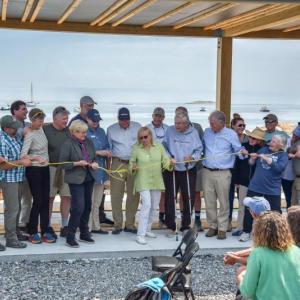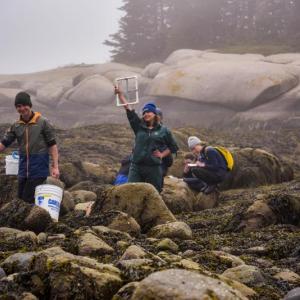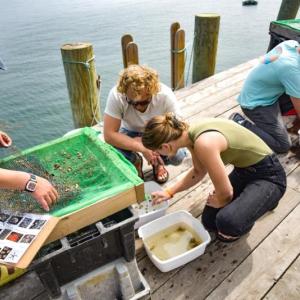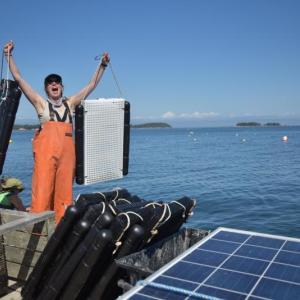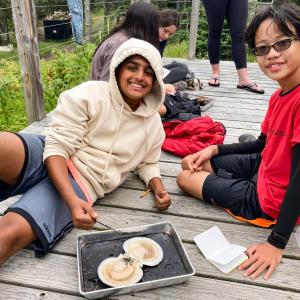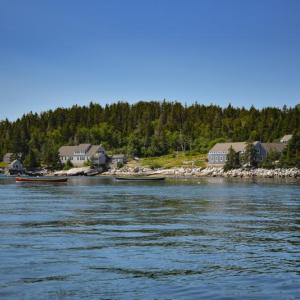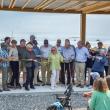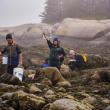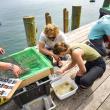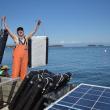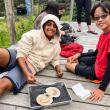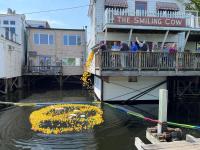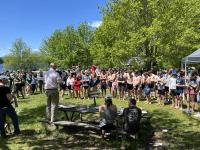Penobscot Bay's newest marine research station opens on Hurricane Island
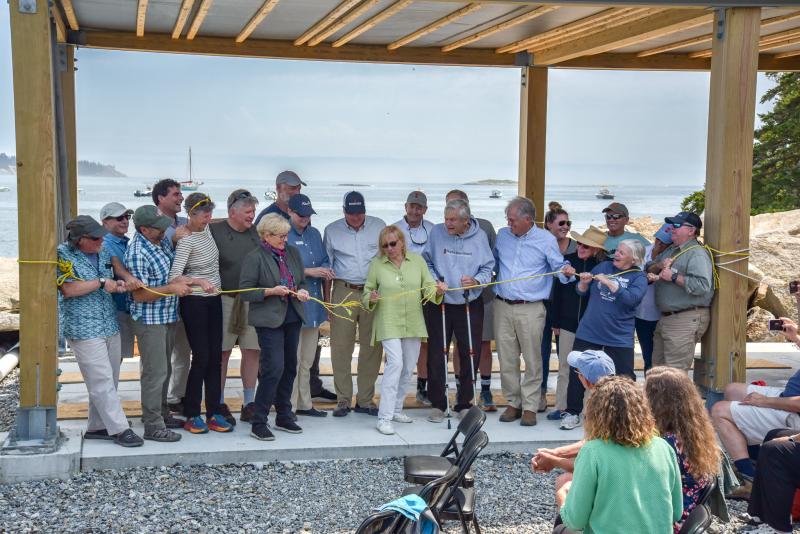 Maine Congresswoman Chellie Pingree and Gov. Janet Mills (center) cut the ribbon on the new Hurricane Island Field Research Station Aug. 5. (Photo courtesy Nate Hathaway)
Maine Congresswoman Chellie Pingree and Gov. Janet Mills (center) cut the ribbon on the new Hurricane Island Field Research Station Aug. 5. (Photo courtesy Nate Hathaway)
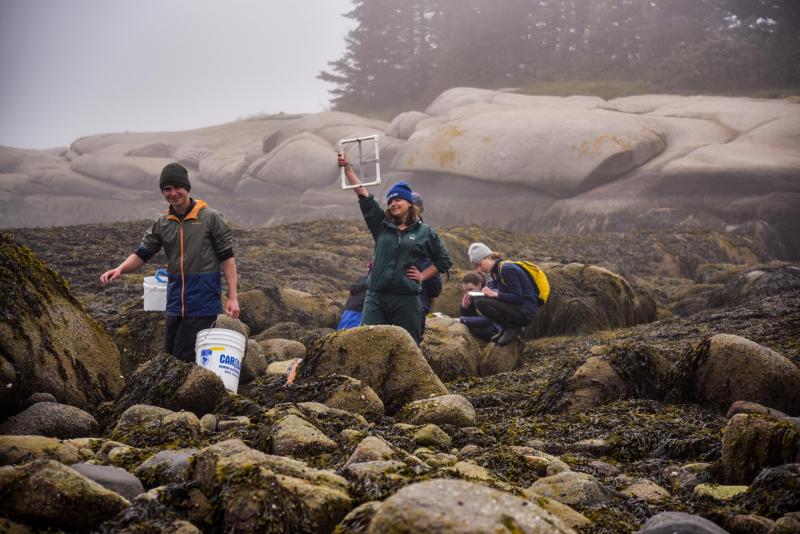 (Photo courtesy Nate Hathaway)
(Photo courtesy Nate Hathaway)
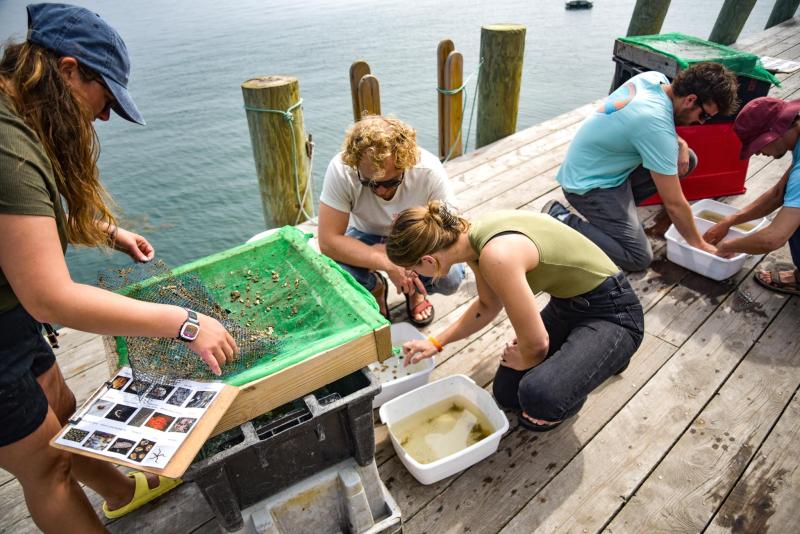 (Photo courtesy Nate Hathaway)
(Photo courtesy Nate Hathaway)
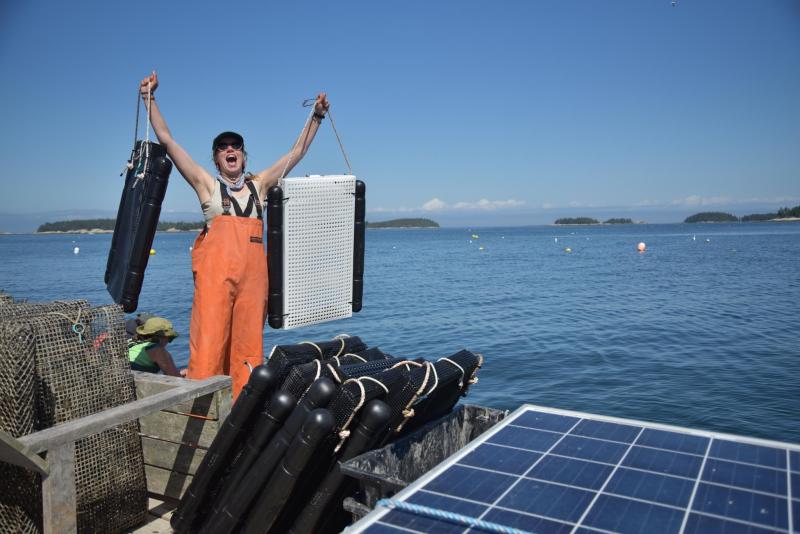 (Photo courtesy Nate Hathaway)
(Photo courtesy Nate Hathaway)
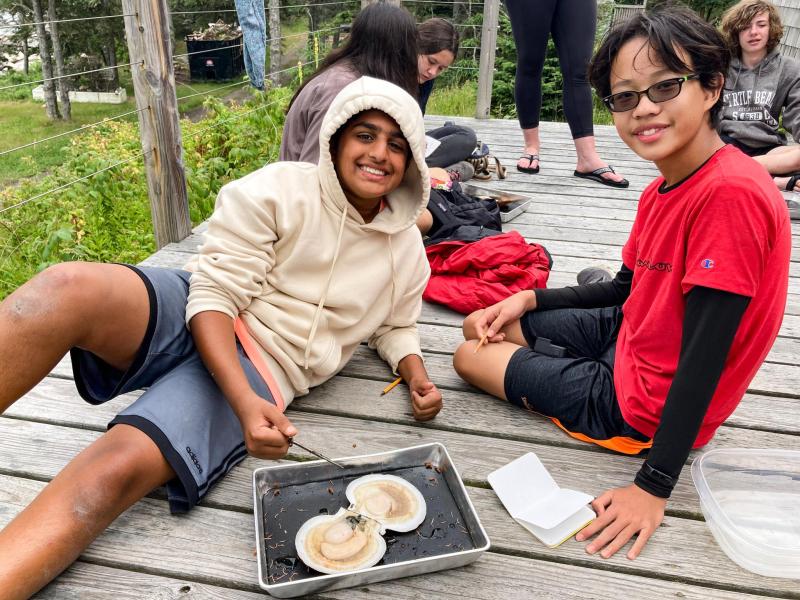 (Photo courtesy Nate Hathaway)
(Photo courtesy Nate Hathaway)
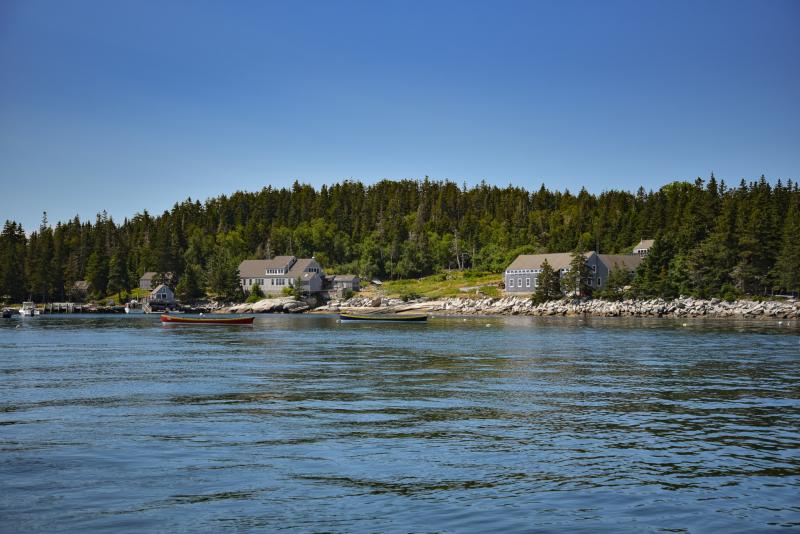 (Photo courtesy Nate Hathaway)
(Photo courtesy Nate Hathaway)
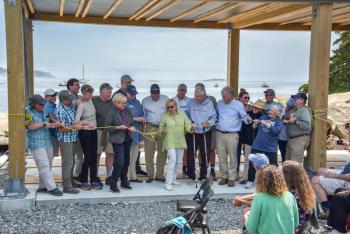 Maine Congresswoman Chellie Pingree and Gov. Janet Mills (center) cut the ribbon on the new Hurricane Island Field Research Station Aug. 5. (Photo courtesy Nate Hathaway)
Maine Congresswoman Chellie Pingree and Gov. Janet Mills (center) cut the ribbon on the new Hurricane Island Field Research Station Aug. 5. (Photo courtesy Nate Hathaway)
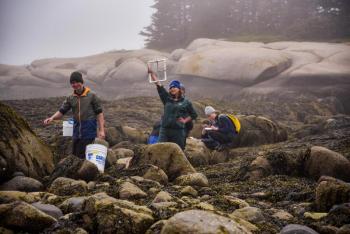 (Photo courtesy Nate Hathaway)
(Photo courtesy Nate Hathaway)
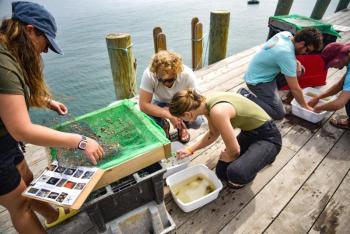 (Photo courtesy Nate Hathaway)
(Photo courtesy Nate Hathaway)
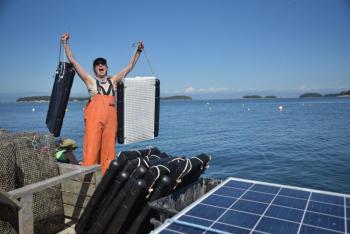 (Photo courtesy Nate Hathaway)
(Photo courtesy Nate Hathaway)
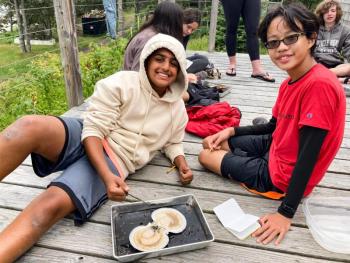 (Photo courtesy Nate Hathaway)
(Photo courtesy Nate Hathaway)
 (Photo courtesy Nate Hathaway)
(Photo courtesy Nate Hathaway)
On Aug. 5, more than 100 attendees gathered on Hurricane Island to join in a Ribbon Cutting Ceremony for Maine’s newest field research station, a carbon-negative facility for marine science on Penobscot Bay and one of two offshore research stations in the Gulf of Maine.
The Gulf of Maine waters are warming faster than 99% of ocean’s worldwide, but there is little data to shed light on the causes and consequences of these changing ocean temperatures. The Hurricane Island Field Research Station will serve as a science facility and a hub to connect local students, teachers, scientists, community leaders, and fishermen in shared efforts to better understand our marine environment.
Governor Janet Mills and Maine Congresswoman Chellie Pingree were joined in the ribbon cutting celebration by Hurricane Island Center for Science and Board Chair Bill Harwood, University of Maine marine biologists Bob Steneck and Rick Wahle, architect Matt O’Malia, Hurricane Island Founder Peter Willauer, Hurricane Island Executive Director Bo Hoppin, and Research Director Anya Hopple.
Christina Breen, representative from Senator Angus King’s office, was in attendance, along with state representatives Valli Geiger and Ann Matlack, Senator Pinny Beebe-Center, as well as Banner Moffat, Chair of the Vinalhaven Planning Board.
Bill Harwood opened the ceremony.
“This building and your presence here today marks the point where Hurricane Island is part of the scientific world of Maine,” he said. “We’re here to learn about the ecosystem of Penobscot Bay and to address the needs of all the coastal island communities that depend on this great bay.”
Having spent time with marine researcher and National Geographic explorer Sylvia Earle earlier that week, Gov. Mills said: “The kinds of creatures that are [in the sea] are what sustain us directly and indirectly and it will be up to this research facility to examine them in a unique environment and unique ecosystem, to learn what’s there and how we can survive and how [marine life] can survive in a more sustainable manner.”
Hurricane Island is in the midst of developing a year-long high school curriculum with the North Haven Community School of interdisciplinary coastal curricula known as the Offshore Year, with emphasis on environmental science, civic engagement, and the arts.
“For all of us who live on these neighboring islands, Hurricane Island is such an important and essential part of our lives,” said Pingree, herself a North Haven resident.
Strategically located near the entrance to Penobscot Bay from the Gulf of Maine, and at the intersection of the Eastern and Western Maine coastal currents, the Hurricane Island field research station will yield a “scientific bonanza” according to University of Maine marine biologist Steneck.
After denouncing the vast expenses of research vessels to the cost-effective opportunities of a centrally-located and sustainable research station, Steneck was not shy to address the growing knowledge gap around aquaculture.
“What I’m seeing now through the state of Maine and throughout the world is the rise of aquaculture, which has all these new questions that arise from it and we’ve got to have the science to know what’s going on and that’s why I’m so passionately in favor of this program,” he said.
Both Steneck and Wahle sit on the Board of Directors of Hurricane Island and have worked directly with Hurricane’s Lead Scientist Phoebe Jekielek.
Jekielek, UMaine doctorate candidate, provided an overview of the work that Hurricane Island currently does and how it will grow with the Field Research Station.
“We have a 3.2 acre aquaculture site where we mostly grow scallops but we have oysters growing and we have kelp. It is one of the only experimental research leases along the coast of Maine,” she said.
Hurricane Island has been working closely with community partners, institutions and nonprofits including the Department of Marine Resources, local shellfish growers and fishermen, Bates College, and Maine Center for Coastal Fisheries, among others.
Hopple, a biogeochemist, was formerly at the Smithsonian Environmental Research Center. She will fill the role of Research Director, and will be instrumental in driving the work and future outfitting of the station.
OPAL Executive Partner Matt O’Malia was on hand to celebrate the completion of the sustainable structure, a passive-house ‘envelope’ which minimizes the power consumption for the solar micro-grid that powers the Hurricane campus, keeping emission and environmental impact to a minimum.
OPAL, based in Belfast, designed and built the structure, overcoming logistical hurdles involved in working on an unabridged island in harsh side-season conditions. The structure showcases the future role of sustainable Maine forestry products.
“When you take the wood fiber insulation and the cross laminated timber, you’re talking about an all wood construction which is renewable, recyclable and carbon storing with a negative carbon footprint when we build that building.” said O’Malia.
While the structure has been completed, the building still remains to be fully equipped. In order to make the most prudent use of funds the celebration was followed by a strategic planning session including many of New England’ scientists and researchers as part of the National Science Foundation field station and marine lab funding.
Among the major systems already earmarked for the FRS is plumbing for indoor flowing seawater tanks, a ‘gold standard’ among marine research stations, which allows scientists and students to interact with species in a controlled environment just a few hundred yards from the island’s experimental aquaculture site where scallops, kelp, mussels, oysters and other specimens can be grown or collected from the wild.
For more information about Hurricane Island Center for Science and Leadership and the Field Research Station visit hurricaneisland.net, questions can be directed to info@hurricaneisland.net
Nata Hathaway is Outreach Manager for the Hurricane Island Center for Science and Leadership

